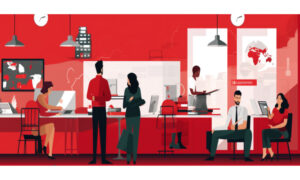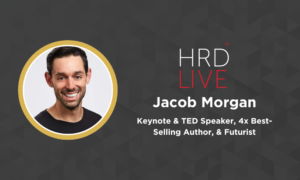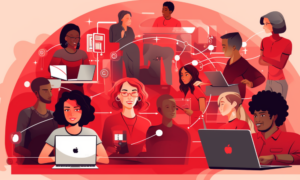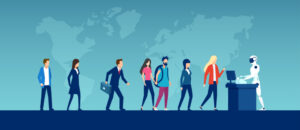Curators of the New Business Landscape – The Future of Work
- 5 Min Read
The future of work is a highly anticipated area of evolution within HR, which everyone either has an opinion on or is eagerly awaiting the discovery of the next big development. Artificial intelligence (AI), agile working and diversification appeared to take the front seat when the panel defined the biggest drivers and disruptors to our current working lives.
- Author: Emily Sexton-Brown
- Date published: Jul 2, 2018
- Categories
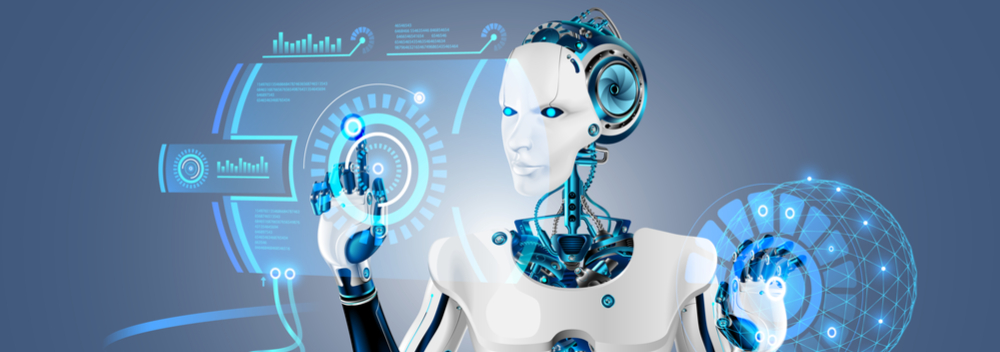
 With these topics in mind, the executive panel discussed how these specific elements will help curate new business landscapes and indeed the future of work, and what this meant for organisations globally.
With these topics in mind, the executive panel discussed how these specific elements will help curate new business landscapes and indeed the future of work, and what this meant for organisations globally.
The panel consisted of:
- Kim Atherton, Chief People Officer, Ovo Energy
- Agnes Jongkind, Global Vice President Human Resources, Deutsche Telekom AG
- Nico Orie, Vice President HR Strategy, and Operations, Coca-Cola European Partners
- Rosa Lee, SVP, Global Human Resource Management, Bosch
- Wanda Hope, Chief Diversity & Inclusion Officer, Johnson & Johnson
Diversify your workforce
Within the session, the panelists pinpointed the trends that are set to impact the business landscape. Some fascinating insights came out of this session including Wanda Hope sharing the need to diversify in all companies and acknowledge the rapidly changing global demographics they cater to at Johnson & Johnson. She highlighted the fact that minorities are now becoming the majority, “Don’t only think internally, we need a workforce that reflects our markets. This is a value we should all share,” she said.
Hope then went onto share an interesting statistic from a McKinsey research, she discussed that companies within the top quartile of ethic diversity inclusion outperformed their competitors who didn’t hold this percentage. She urged the delegates that employees want to work somewhere they belong, “People won’t work anywhere where diversity and inclusion isn’t a consideration and why should they?”
Kim Artherton agreed, saying: “We need an entire range of people making up our workforces. One of the most important skills for the future is complicated decision making, which requires experience and life skills – diversify your workforce.”
“We have a business objective focused on giving our employees their time back, therefore we will only introduce digital options if it makes our employees lives easier and more productive.”
The aging demographic was topical, Rosa Lee said, “We have a consultancy firm at Bosch formed by retired people because of their experience. How do we include all these different perspectives?” Nico Orie spoke about Coca Cola’s long term plans prioritising diversity and inclusion and the need to continuously reflect a diverse culture, has said: “Diverse cultures are enriching cultures.”
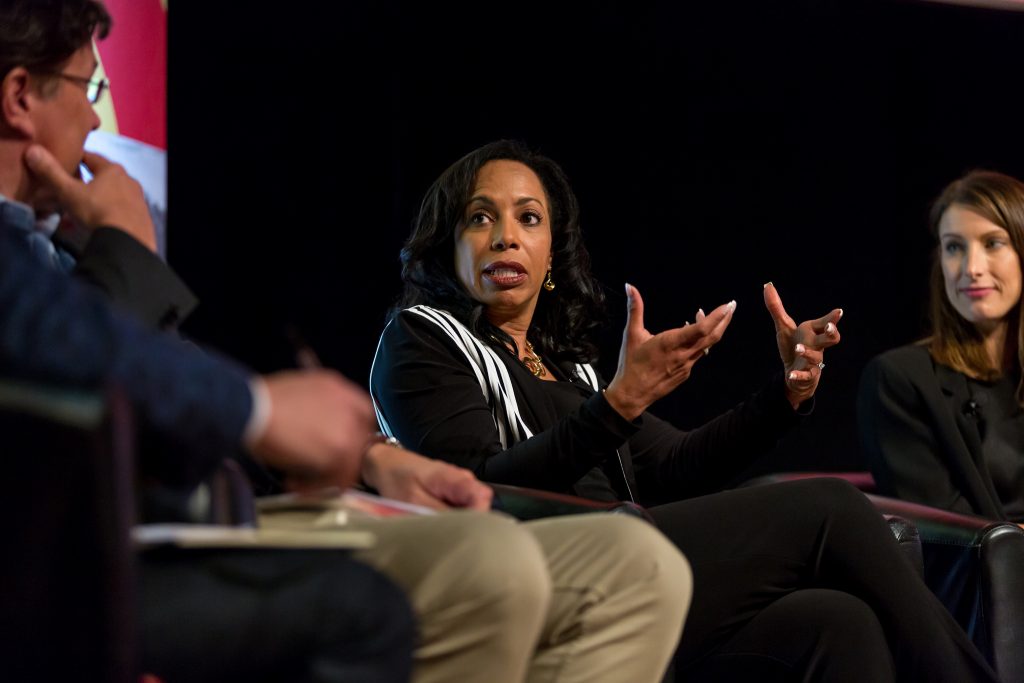
Lee spoke about the importance of retraining the older generation to better equip them for the future of work, and the technological demands that will be upon them. “How can we ensure that we are training, or re-training them?” She said.
Technology focus
Technology was next on the future agenda, which in turn led the panel to discuss agile and flexible working.
“If you do your work at home, or in a parked car it doesn’t matter where it is, it just matters that is gets done,” said Hope, she believes that as globalisation steadily grows we need to allow for increased flexibility in the workplace.
For Hope, AI will make workforces naturally more agile, “It will make us have to figure out how to help and develop the robots – it’ll be a whole new way of working,” she said.
Orie spoke about technology in the past and how it hasn’t always delivered to the level expected. He said, “We need to look out the foundations, and not just be digital for digital’s sake. We have a business objective focused on giving our employees their time back, therefore we will only introduce digital options if it makes our employees lives easier and more productive.” He continued, “Technology has to deliver, otherwise it’s not worth it.”
Anges Jongkind spoke about the widespread fear of job losses and the impact AI will have on day to day lives, she said: “Artificial intelligence will decrease jobs, but increase work.”
“Don’t only think internally, we need a workforce that reflects our markets. This is a value we should all share.”
Generational outlooks also became a key theme discussed throughout the panel, the aging workforce as previously mentioned but also the expectancy the younger generation have on technology. Artherton mentioned: “The younger generation are used to using and having technology in their work and their personal lives.”
Business demands for HR
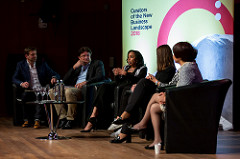 To conclude, the panel then discussed the expectations businesses will and continue to have upon HR, Jongkind suggested that the expectation of having the correct skills in place for these future roles is going to be a challenge for HR and that HR need to develop strong feedback pipelines. Artherton agreed citing the war on talent as an ever-existing issue for business leaders and ensuring the business is equipped with the correct skill sets to move forward.
To conclude, the panel then discussed the expectations businesses will and continue to have upon HR, Jongkind suggested that the expectation of having the correct skills in place for these future roles is going to be a challenge for HR and that HR need to develop strong feedback pipelines. Artherton agreed citing the war on talent as an ever-existing issue for business leaders and ensuring the business is equipped with the correct skill sets to move forward.
Orie spoke about the next for HR to step up to the changes happening every day, he said that HR needs to be entirely evidence-based to be able to predict and adapt at a rapid pace.




